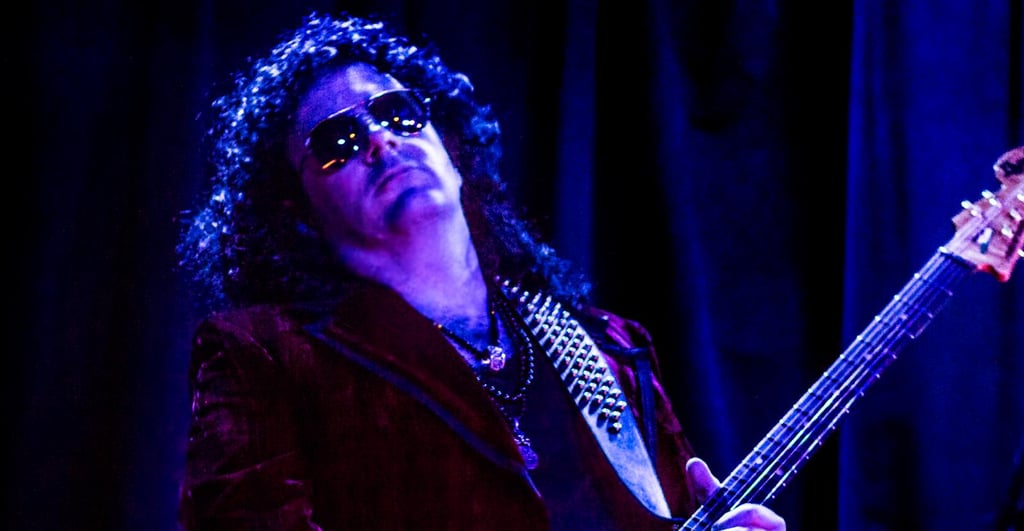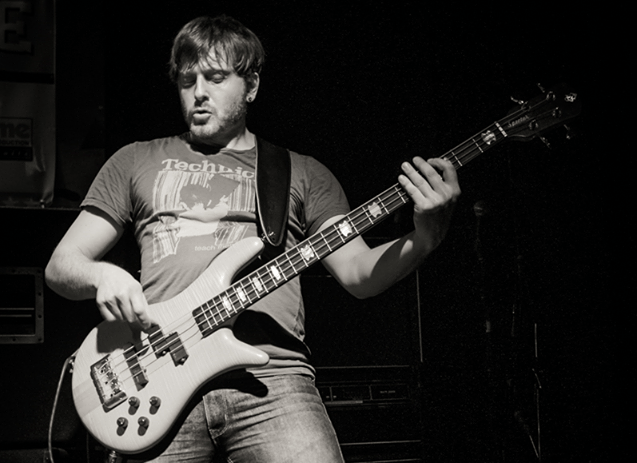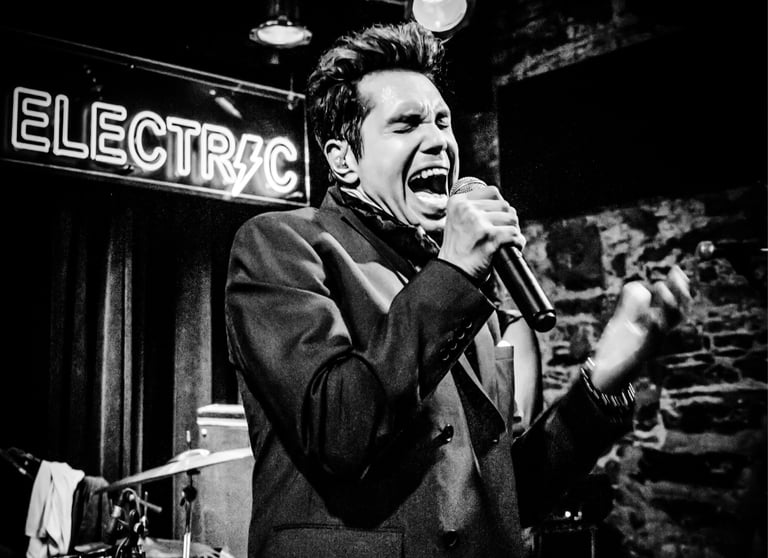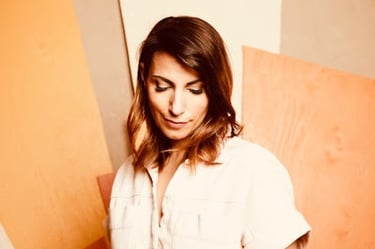Exclusive Interview with Dave Baron of Last Chance: Grit, Grief & the Power of Raw Rock
INTERVIEW
9 Lounges Team
6/4/2025


Hi. This is Dave Baron. Guitarist/Songwriter/Producer of Last Chance. Thanks for having me!
We made our album remotely, under COVID lockdown. On top of that, we were all going through other life stuff as well. So everything we were facing personally—every stressor—all the anger, pain, and loss of that period went directly into the songs. And before we knew it, we had a very dark set of songs on our hands.
Sick of it All was about that COVID stress everyone was feeling. The songs "Breaking," "Don’t Wanna Be Your Man and Tattoo are all about relationship struggles of one kind or another.
Breaking started with real emotions I was feeling at the time. When I wrote the song, I thought my marriage was breaking under the various stressors we were under. I’m very happy to say my marriage didn’t fail, but the emotions in the song were quite real to me at that moment.
Other songs like "Gotcha Back and Tough Titty" were more anecdotal than personal but still about relationships. Human Eyes is about how meeting his wife changed singer Frankie Rage’s life for the better. Kamikaze is about fear and self-loathing leading to destructive behavior.
But the most personal gut-punch song is Anything But That. That’s the very real story of me losing my father to Alzheimer’s. That was a brutal time for me and my family, and one of the only things that helped me get through it was writing that song.
Guitarist and songwriter Dave Baron of Last Chance opens up about loss, anger, and the raw emotional journey behind their gut-punch debut album. From Alzheimer’s grief to pandemic isolation, hear how music became his lifeline—and what’s coming next.
Your music has been described as a “gut-punch of catharsis.” What personal experiences inspired the raw emotional energy behind your latest release?
Your music has been described as a “gut-punch of catharsis.” What personal experiences inspired the raw emotional energy behind your latest release?
Again, I’d point to Anything But That as the most personal one for me. My father was a brilliant man. A literal rocket scientist who worked at NASA in the Mercury days. Beyond that, he was a great father, friend, and confidant. That such a man would have his mind stripped from him and be reduced to a babbling infant was the worst possible death I could have imagined for him. The lyrics propose that cancer or having him wheelchair-bound would have been better, because at least he’d still be the dad I loved and could talk to about anything. That was taken from him, and me, and my family. My father was mentally gone two years before he finally died.
The situation didn’t leave me defiant. It left me incredibly pissed-off that my father had drawn that particular death card. And when I started writing that song, I started with an incredibly pissed-off, anguished-sounding guitar riff.
You draw influence from punk legends and dark pop icons—Stiv Bators to Paul Westerberg. How do you fuse these styles into something uniquely “Last Chance”?
The mention of those guys came from a reviewer who heard our music. I’m not saying those influences aren't there, but it wasn’t intentional. If folks are hearing Bators and Westerberg in Last Chance, it’s probably because, like us, those guys grew up listening to the same common ancestors—The Beatles, the Stones, Black Sabbath, etc.
Our singer, Frankie, is an original NYC punk rock guy. I have nothing against punk at all, but my musical influences and guitar style come from classic rock, heavy rock, and metal. We thought by blending our differing styles, we would create something a little different. And for better or worse, we did.
It’s funny, though. Everyone who hears the album has a different take on what genre it is. If you listened to our backing tracks without the vocals, I’m not sure people would consider Last Chance a punk album at all. The musicianship is more along the lines of heavy rock, complete with a virtuosic, often funky rhythm section and guitar hero-like guitar solos. Not the hallmarks of punk rock!
But the minute you hear Frankie singing pissed-off, angst-ridden lyrics, the punk energy comes through loud and clear! And all of a sudden, it’s a punk album! Just not in the traditional sense. I’m actually fine with that, but to some, that musical mix is like chalk and cheese. Once done, we’ve often felt like a square peg facing a world of round holes.


Your lyrics feel like they’re written from the edge—emotionally and mentally. What’s your process when turning heartbreak or rage into music?
I think it just comes from trying to deal with whatever life is throwing at you at any given moment. Before Last Chance, my songwriting was more topically varied and far less personal. But as I mentioned, this album was written in very dark and stressful times, so most of these songs reflect those emotions.
What I learned through the process is that (for me) it’s actually easier to write about what you’re feeling in the moment, than to conjure up random song topics out of thin air. The other benefit I’ve found is that when you write about what’s personal to you, getting those emotions out in song form can be very cathartic.
When I was dealing with my father’s demise, a friend of mine suggested I write down my feelings in a journal. I tried that, and honestly, it didn’t help at all.
But writing the song did help. The song helped me get some of my anger and sadness out about his death—in a way that crying or writing in a journal just didn’t. Anything But That was very cathartic for me. And I think Frankie did a great job of putting a voice to my anger and anguish on the track.
Once I figured out that turning negative emotions into songs was cathartic, it seemed obvious to keep on doing that.
The new album is described as a 10-track descent into chaos. Was there a central theme or storyline you followed while creating it?
No. We didn’t start out with any preconceived idea about what the songs would be about. We just let them flow naturally and ended up where we did.
We’ve talked about it being a dark album, but there isn’t necessarily one overarching theme, except, perhaps, that for most people, life isn’t easy!
No one in this band is young. Our songs deliver an adult perspective on adult experiences and pain. At this point in our lives, it felt blindingly obvious to sing about real issues people our age are dealing with. And by expressing them musically, we can hopefully get some of that catharsis I spoke of.
You talk about rejecting algorithm-driven hits and empty hooks. How do you stay true to your vision in an industry that often rewards the opposite?
We stay true to our vision by making the music we want to make—for ourselves. We do it for the artistic, creative outlet it is, rather than pursuing it as a career. Frankie Rage, bassist and co-producer Rob Phillips, and I all have long careers outside of music already. We make music because we love doing it.
For us, that meant giving up on caring whether your music ever gets heard beyond your circle of friends and doing it anyway—because we must. Because we have something to say, musically.
I’m not saying that’s an easy leap to make. When we finished the album, we were quite proud of it, and we did want people to hear it. We made some lyric videos and hired a PR company to give it a push, but it’s mostly been the proverbial tree that fell in the forest—not many people have heard it. Mind you, we weren’t expecting millions of followers, but a thousand? Or even a few hundred would have been nice. After all the work we put into it, that was defeating, and I was depressed about it for months.
So back to the original question, you stay true to your vision by redefining success. There’s no money in music at our level, so you have to find success elsewhere.
For us, the only joy lies in the creative process of writing and recording the kind of music we love making. Once you’ve made the music, everything else about the process—the industry, trying to market your music through social media and streaming—all that sucks major ass.
The only success is that we made the album we wanted to make. We wrote all the songs, played all the parts, and produced it ourselves. We’re all incredibly proud of how well it came out. If people hear it and like it, that’s gravy.
What do you want someone to feel the first time they press play on your music? What’s the emotional journey you hope they take?
Hopefully, it’s something like, “Great song! What these guys are singing about, I’ve felt that, too.
At the end of the day, we think it’s an honest album, with songs about the human condition, filled with real, raw emotions that we hope people will relate to.
Listeners who grew up on rock music will recognize that Last Chance delivers rock with scope. We have songs that lean a little metal. We have songs that lean more punk. We have songs that are kind of Stonesy. We have a couple you’d call ballads. That kind of musical scope used to be common and desirable. These days, scope tends to confuse playlist curators, algorithms, and listeners used to having their music diced into a million subgenres.
That said, there’s ample evidence that rock music—done well—still pushes all the buttons that make people of all ages want to pump their fists in the air, headbang, or whatever. Musically, we hope that our album delivers on that.
We want listeners to rock out! We hope they find the songs catchy, and hope they (and other musos) will enjoy the musicianship, too, because there’s a lot of it going on underneath the punky vocals.
Many people describe your music as a lifeline in their darkest moments. Has creating this music been just as healing for you as it is for your fans?
Yes. I’ve already mentioned the cathartic nature that some of the songs had on me — getting me past some rough times. If our music resonates with other people going through similar emotions, that pleases us tremendously.
Frankie told me that he played Anything But That for a friend who’s parents are suffering from Alzheimer’s, and by the time the song was over, the guy was in tears. That’s powerful.
As I've said, not a lot of people have heard us, but the response we’ve received from those who have has been universally positive. Given the current state of music, knowing that you reached a few people — on whatever level — with something honest, that you poured your heart into — that seems to be all the validation one can hope for these days.



________________________________________________________________________________________________________________________________________________________
________________________________________________________________________________________________________________________________________________________
Must Listen
Also Read
________________________________________________________________________________________________________________________________________________________
________________________________________________________________________________________________________________________________________________________
What’s next for Last Chance? Are you planning more music, touring, or anything else fans should brace themselves for?
We are more than halfway through finishing our second album. It features Frankie, Rob, and I, and the magnificent Brian Tichy (Billy Idol, Whitesnake, Foreigner, Dead Daisies, Gene Simmons) on drums. Brian’s playing raised everyone’s game, and if you liked the first album, I think you’ll like this one too.
Hopefully we finish it in 2025. Once again, it’s been very slow working remotely, and life keeps interrupting. I can tell you, the music picks up where the first album left off.
Will it be another dark album? We’re calling it Dickpunch!, so you can probably guess.
Connect with Last chance

